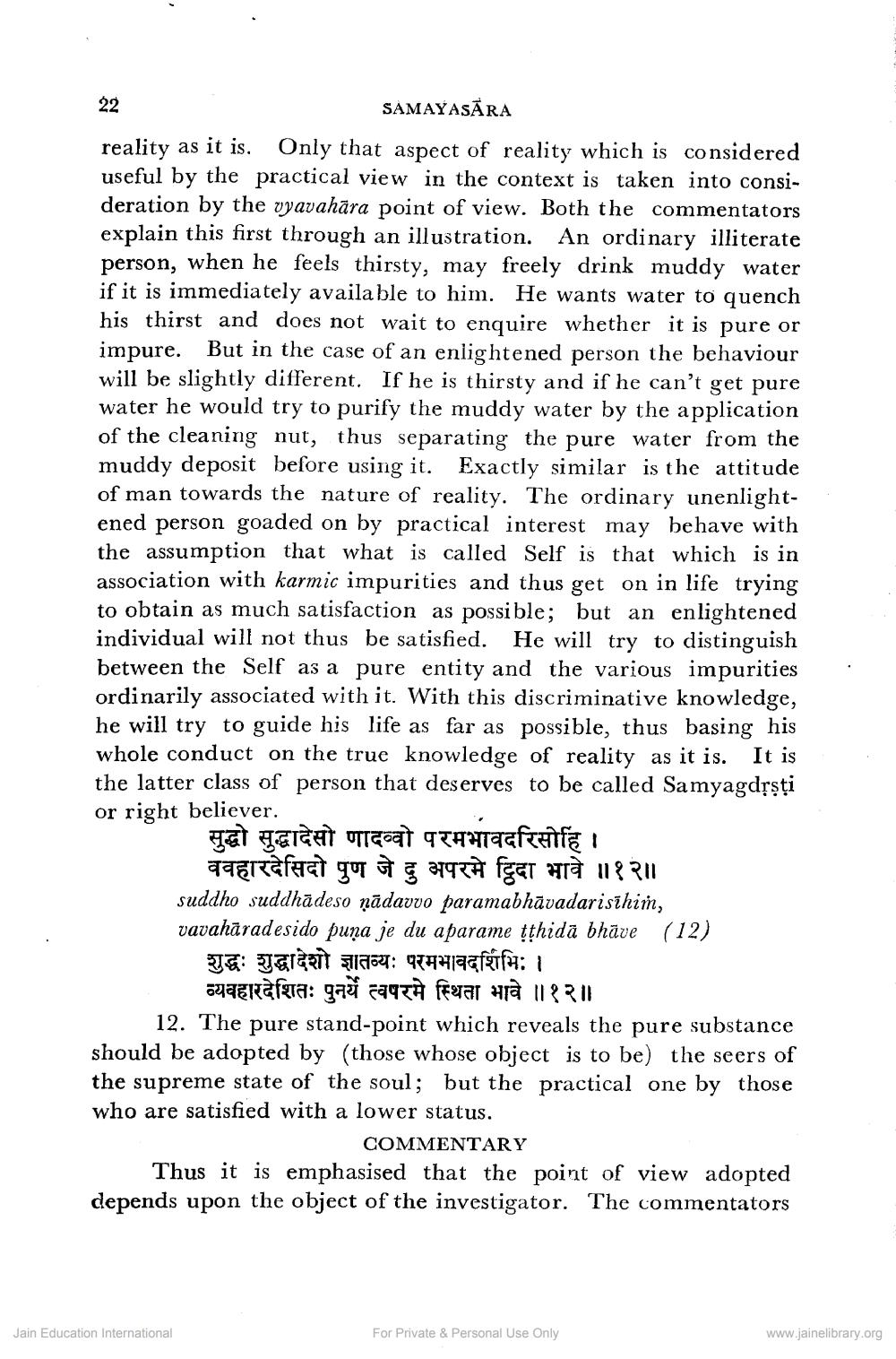________________
22
SAMAYASĀRA reality as it is. Only that aspect of reality which is considered
seful by the practical view in the context is taken into consideration by the vyavahāra point of view. Both the commentators explain this first through an illustration. An ordinary illiterate person, when he feels thirsty, may freely drink muddy water if it is immediately available to him. He wants water to quench his thirst and does not wait to enquire whether it is pure or impure. But in the case of an enlightened person the behaviour will be slightly different. If he is thirsty and if he can't get pure water he would try to purify the muddy water by the application of the cleaning nut, thus separating the pure water from the muddy deposit before using it. Exactly similar is the attitude of man towards the nature of reality. The ordinary unenlightened person goaded on by practical interest may behave with the assumption that what is called Self is that which is in association with karmic impurities and thus get on in life trying to obtain as much satisfaction as possible; but an enlightened individual will not thus be satisfied. He will try to distinguish between the Self as a pure entity and the various impurities ordinarily associated with it. With this discriminative knowledge, he will try to guide his life as far as possible, thus basing his whole conduct on the true knowledge of reality as it is. It is the latter class of person that deserves to be called Samyagdsșți or right believer.
सुद्धो सुद्धादेसो णादव्वो परमभावदरिसोहि ।
ववहारदेसिदो पुण जे दु अपरमे टिदा भावे ॥१२॥ suddho suddhādeso ņādavvo paramabhāvadarisihin, vavahāradesido puņa je du aparame třhida bhäve (12)
शुद्धः शुद्धादेशो ज्ञातव्यः परमभावदर्शिभिः ।।
व्यवहारदेशितः पुनर्ये त्वषरमे स्थिता भावे ॥१२॥
12. The pure stand-point which reveals the pure substance should be adopted by (those whose object is to be) the seers of the supreme state of the soul; but the practical one by those who are satisfied with a lower status.
COMMENTARY Thus it is emphasised that the point of view adopted depends upon the object of the investigator. The commentators
Jain Education International
For Private & Personal Use Only
www.jainelibrary.org




